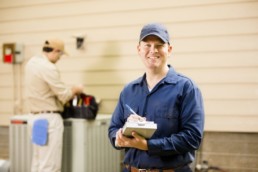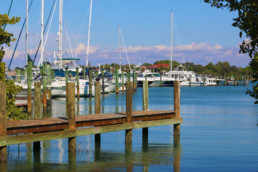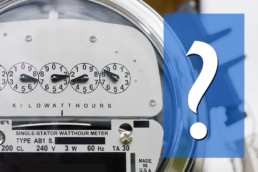Getting Heat From Your Air Conditioner During Cold Weather
While most people know that central air is great for cooling down a home, most do not realize that this is actually the same unit that provides the heat in a home as well.
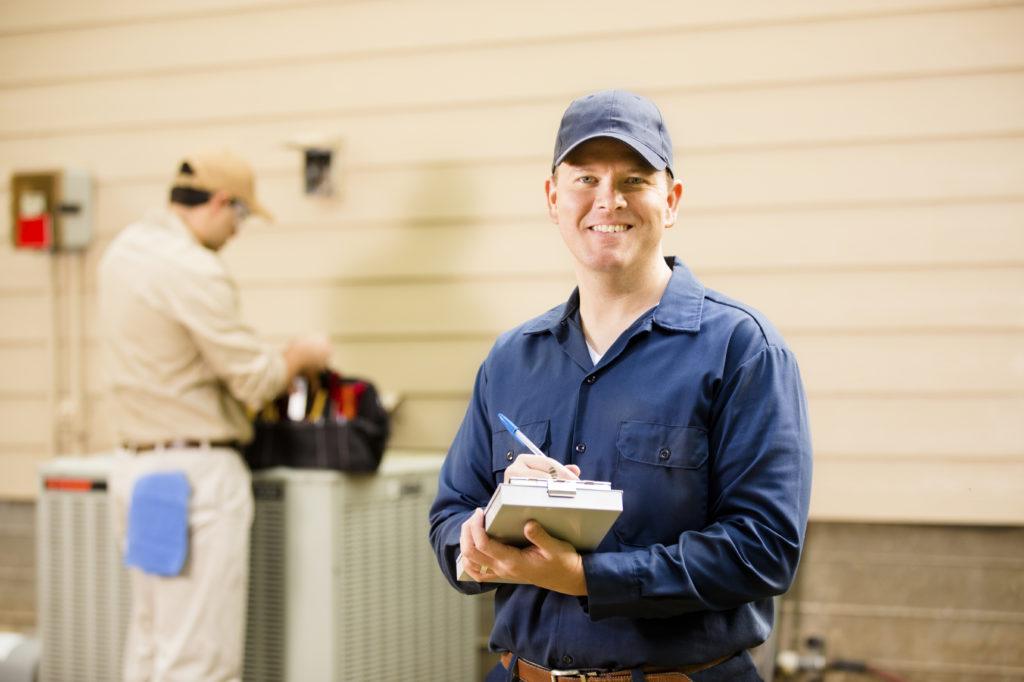
This kind of air conditioner, known as a heating, ventilation, and air conditioning unit, or HVAC unit, controls and regulates the interior air quality and temperature. However, with the winter months and the cold approaching these units are under stress from the severe weather. As such, some of these units may fail without proper servicing. If that is the case then owners may experience loss of heat. That does not mean that the home cannot be heated again, only that a different kind of heating is required.
On most thermostats, there is a red button that, when pressed, will turn on the emergency heating unit. If the primary heating unit fails, this backup will serve to heat the home until the HVAC unit can be serviced. Luckily, all homes that are in northern climates, or areas that dip below thirty five degrees, are required to have secondary heating. Under normal conditions, the HVAC unit will use both the primary heating unit and the secondary heating unit for any additional supplementation. When the primary heating unit fails, the secondary heating unit is engaged when the emergency heating button is pressed in order to replace the primary heating unit. While this is an excellent feature for emergencies, the secondary heating unit is not designed to replace the primary heating unit, and should only be used until the HVAC unit can be repaired.
The heat pump, or primary heating unit, is what heats your home during normal function of the HVAC unit. In the winter months, due to the extreme weather conditions, this unit could become damaged as it is often placed outside of the home. Whenever there is any kind of dangerous weather, it is important to check the unit to make sure that there is no visible damage. Snow, ice, and fallen tree limbs could compromise the unit and cause it to fail. The emergency heating unit will bypass the heat pump if it is damaged and still provide heat to the home. However, by bypassing the heat pump, the unit has to work harder and expend more energy, which, if the heat is electric, could wind up costing the owner a large amount of money. So while emergency heating is efficient for short term use, it should never be used to replace the heat pump entirely.
The best way to avoid any failure on the part of the HVAC unit is proper maintenance and servicing throughout the year. Common problems with air conditioners that are older arise from infrequent servicing. These problems include, refrigerant leaks, electric control failure, sensor problems, and drainage problems.
A refrigerant leak in an HVAC unit will result in the unit not supplying the needed cold air at the same efficient rate. The unit will have to work harder to maintain the cold air, costing you money and adding stress to the system. Furthermore, if the unit runs out of refrigerant, no cold air will come out at all no matter how low the thermostat is set. On top of that, if refrigerant is leaking it could damage the environment. If owners experience these problems, an HVAC technician will be able to diagnose and repair the leak.
If a unit is turned on and off frequently, the compressor or the fans could stop working due to corrosion on the electrical contacts or a connection issue. These contacts and connections should be cleaned and checked by a professional regularly.
Thermostats are designed to properly scan and analyze the room temperature and communicate to the HVAC unit to regulate the system. If the unit is moved or damaged however, it may result in improper analysis and erratic HVAC behavior.
Lastly, in humid environments with a high level of condensation, the condensate drain should be checked and unclogged as necessary to ensure that the unit drains properly.
If the recent cold weather in our area has you discovering problems with your heating system contact the HVAC pros at Mahle Cool Air and Heating.
What Are The Most Likely Issues With Old Air Conditioners?
Your air conditioner is a complex apparatus, consisting of many different parts that can eventually wear out. With proper maintenance, however, an AC unit can last for many years. Older models are subject to such problems as worn-out electrical connections, faulty wiring, inoperable thermostats, or burned out compressor or blower motors. In most cases, these problems are easily corrected when the work is performed by a licensed, experienced heating and air conditioning repair technician.
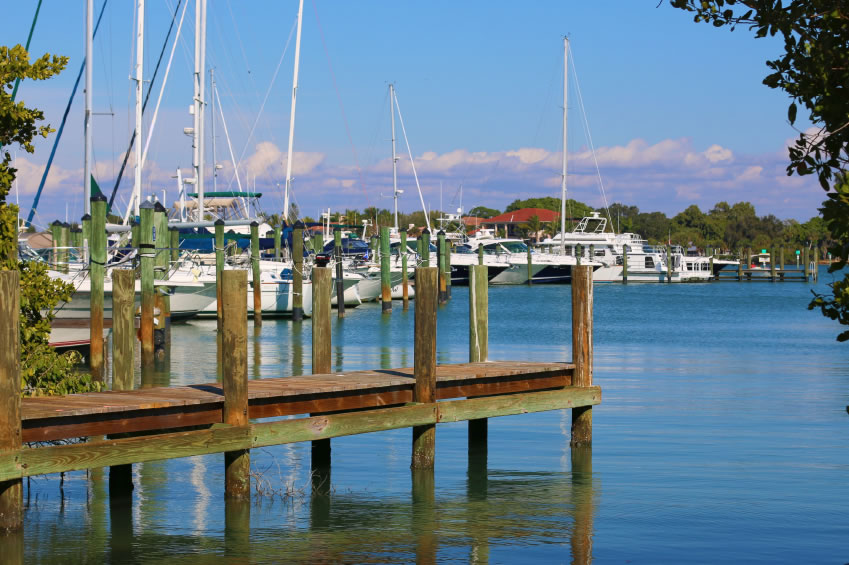
It's important to keep your system in good running order, especially if it is an older unit. Besides the proper maintenance procedures you can complete yourself, it's a good idea to have your system checked at least once every 12-24 months by a repair expert. Replacing the entire unit because of maintenance negligence is far more expensive than most repair operations. Some of the most common issues with older model air conditioners are explained below. These are easily repaired by an HVAC professional.
Loss Of Cooling Power
Your system's refrigerant is what cools the circulated air. If your air conditioner is no longer producing chilled air, your refrigerant may be becoming weakened or you may have a leak in the refrigerant line. When the refrigerant sits idle for long periods of time during non-use, it can become sludged. This can cause a blockage in the smaller feed lines in and around the evaporator coils. If your coolant lines around the evaporator coils are becoming frosted over, it may be the result of blocked refrigerant flow.
A refrigerant leak occurs when an older piping system becomes corroded. A leak usually happens very quickly, with all of the refrigerant escaping within a period of minutes. If your system suddenly fails to produce cool air even when the blowers are working properly, you will likely have to have your system recharged with a new supply of refrigerant.
Clogged Or Worn Evaporator Coils
The evaporator coils come into contact with the air being drawn in by the blower. This is where the heat in the air is transferred to the coolant. Older models are susceptible to evaporator coil problems, especially if the coils become clogged with dust, grit, or other airborne particles and hair.
It's important to clean off both edges of the coil surfaces from time to time. Even when the filters are being replaced regularly, the coils still become coated with grit and grime. However, even when cleaned off on a regular schedule, the coils become coated on the inside. This requires a professional cleaning procedure, one that should be scheduled every one or two years.
Motor And Fan Problems
Most systems have two fans. One is the blower fan that is located beside or above the evaporator coils. This fan can become stuck if the shaft becomes knocked out of alignment or if the shaft is coated in grime. If the motor is whining but the fan is not turning, the motor itself may be wearing out.
The compressor fan is operated by a similar type motor. If the motor buzzes but does not operate the fan, the motor is probably burned out and needs to be replaced. However, the problem may be a worn out capacitor. The motor is connected to a jump-start capacitor that delivers additional amperage to get the motor shaft turning. You may need to call in the services of a professional to determine whether the problem is with the motor or the fan.
Dirty Filters And Air Ducts
The filters located near the evaporator coils should be replaced once every four to six weeks. If they become clogged, less air will transfer its heat to the coils, and the output pressure from the registers will be reduced significantly. In older systems, it is vitally important to have a professional clean out the ducts as well. This reduces blockage and also keeps the duct system free of harmful biological agents.
Faulty Thermostat
If the thermostat is more than 10 years old, it should be checked by a professional each time any other repair service is performed. Sometimes a faulty thermostat reads temperature incorrectly, which can lead to cycling of the system. It is recommended that the thermostat be replaced by a newer model that can more accurately measure actual room temperature. Newer models also have some high-tech features that allow for customizing the amount of work the system performs, which can save a lot of energy.
Get Professional Help
It's best not to attempt any type of repair job unless you have the adequate training and experience required. We are a family-owned HVAC company with decades of combined experience in all types of system-related problems. We are NATE-certified and Bryant Factory authorized, and we promise complete satisfaction with each type of repair or replacement work we perform.
Is a heat pump or central air conditioning system the right fit for your Venice home?
It's a decision that many homeowners in Venice face when its time to replace a malfunctioning or aging heating or air conditioning system:
Should I install a heat pump or central air conditioning system and what exactly is the difference between the two, anyway?
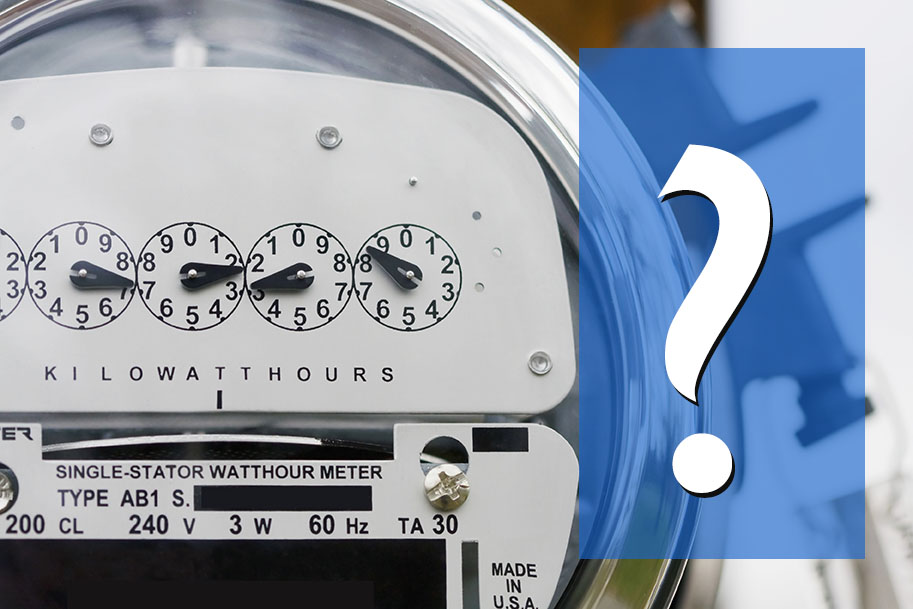
How heat pumps and air conditioners work
First things first. What makes a heat pump a heat pump and an air conditioner an air conditioner? That can be a little complicated. Both use basically the same technology to operate, just in different ways. And that can have a big impact on the comfort level inside your home and in your wallet.
A heat pump relies on a closed loop system that circulates refrigerant so that hot air is blown inside your home during the winter and outside during the summer via what is known as a reversing valve. That means that heat pumps function as a heater during the colder months and as an air conditioner during the warmer months. Since heat pumps function to make your home comfortable all throughout the year, they can also help you keep your energy bills in check. In addition, many heat pumps operate more effectively in temperate climates as we enjoy here. They also use a multi-split ductless system to distribute air throughout your home.
Air conditioners use a closed loop system to circulate refrigerant that cools the air. The refrigerant makes it way through a compressor valve, which puts it under a lot of heat and pressure. The refrigerant then travels through a compressor coil, which siphons off the hot air to outside your home. This process changes the refrigerant into a liquid while it still remains under a great deal of pressure. The liquid is then moved through what is called an expansion valve and from there into a series of evaporator coils. As the liquid evaporates, it works to pull heat from the surrounding air and cools it. That cool air is then blown by a fan through a system of ducts into your home.
Which one is right for you?
By now you may be thinking that there's really not a lot of difference between a heat pump and a central air conditioning system - you're right.
The major differences between the two come into play when you consider how they operate in the winter. And while we who call Venice home may not need to run the heat as much during the colder months as our more northern neighbors do, it can get cold here, so consider the following advantages of heat pumps: Many models do not require additional equipment in order to heat your home, which can free up valuable living space for you, your family and friends. Heat pumps are generally more energy efficient than air conditioning systems, leaving you with more green in your wallet.
And if you are looking to live a more environmentally friendly lifestyle, heat pumps can be partnered with an energy efficient geothermal system such as solar panels and do not burn fossil fuels.
There are also advantages to a central air conditioning system, especially during the winter months. A central air conditioning system will not warm your home as a heat pump will. That means you'll probably use a separate furnace to keep you and your family warm and comfortable when its cold outside. And, furnaces do have several important advantages over heat pumps. They won't shut down when temperatures plummet like many heat pumps will nor do they require auxiliary heating like heat pumps. Furnaces are also generally cheaper to install than heat pumps and have fewer maintenance problems as well. Call or Text us today for more details (941) 203-7955 and don't forget to check out our specials, financing, and rent-to-own air conditioning options. Stay Cool with Mahle!
